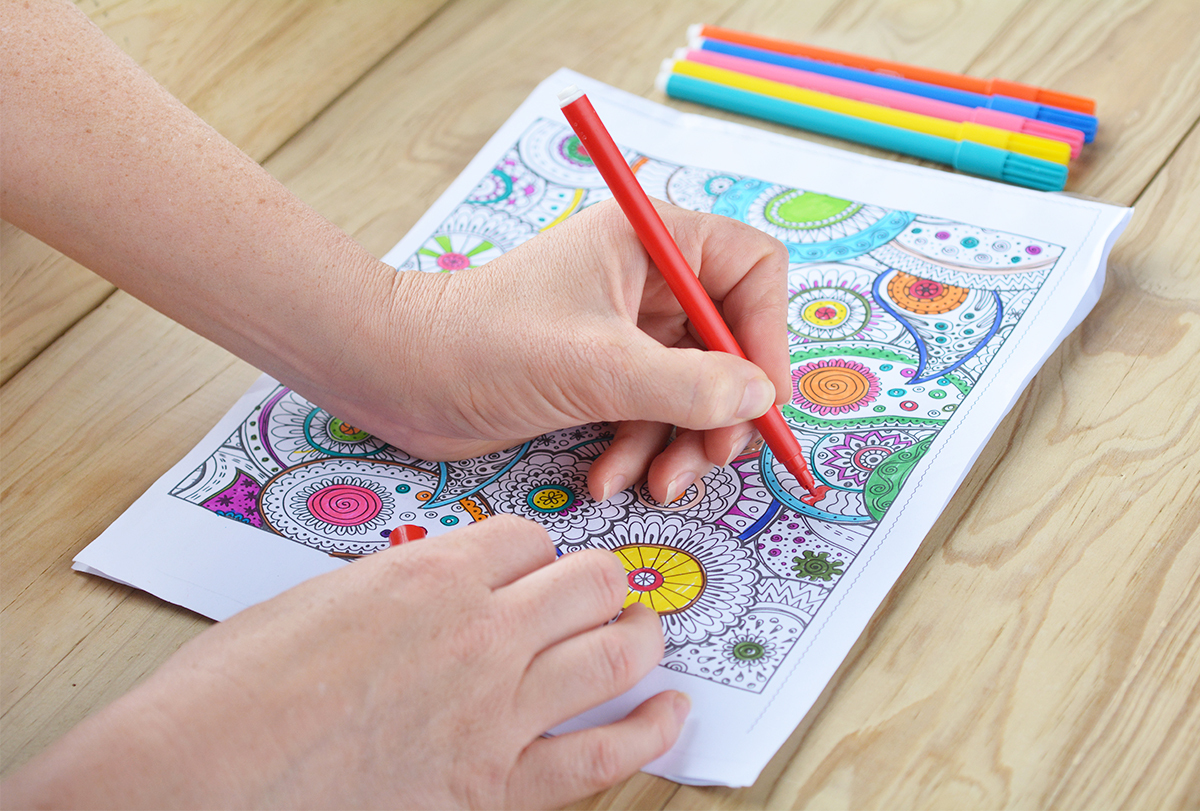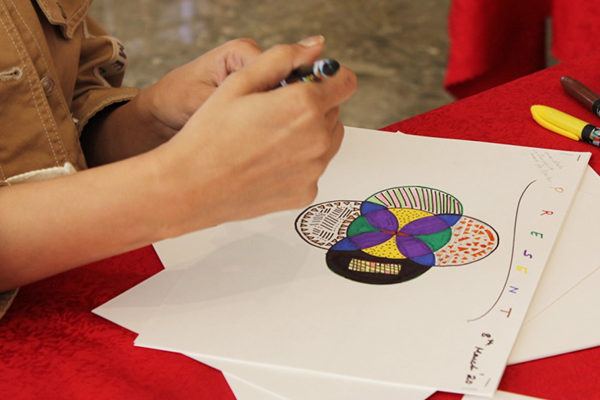In this article:
Art therapy brings together the realms of applied psychology and active art making to facilitate improved mental health.

This psychotherapeutic approach rests on the notion that art is a legitimate language of expression and a medium for self-discovery, especially for those who find it difficult to process or communicate their thoughts and emotions.
The American Art Therapy Association describes this intervention as a cross between mental health and human services that aims to enhance the mental function and overall quality of life of individuals, families, and communities. This technique allows unfiltered expression of those thoughts, feelings, and emotions that are difficult to put into words, through art. (1)
People struggling with emotional and psychological challenges can use art not only as a means to explore and channel their inner turmoil but also to make sense of the world around them. What cannot be articulated in words can be conveyed through drawing, painting, collage making, and coloring.
How Does Art Therapy Work?

Art therapy is not about creative excellence but rather about self-expression. (2) The artworks produced during art therapy sessions are not judged for their artistic value.
So you need not be creatively gifted to participate in this therapy. You don’t have to make a masterpiece for the therapy to be considered successful. All you have to do is honestly and uninhibitedly give yourself to the creative process.
Patients often end up conveying things that have been lurking in their subconscious through their creative choices. Thus, therapy can often surprise you by unearthing thoughts, feelings, and emotions that you were previously oblivious of.
Every decision that goes into art making, from the choice of color, texture, or art media to the subject of the piece, can reveal something or other about the inner workings of your mind. However, artistic expression is a messy business that cannot be decoded through a manual or guide. There are no set rules of interpretation.
Only a professional art therapist knows how to analyze the psychological and emotional undertones in the art of the patient. These insights hold significant therapeutic value if you are trying to overcome mental, emotional, or psychological handicaps or trauma. They provide a deeper understanding of your own self and personality.
The therapy session may also utilize third-party artwork as a springboard to start a conversation, wherein the patients are asked to give their views about a particular art piece with the hope that their answers will reveal their psychological disposition.
First, you are asked to spill out your inner self through artistic creation or expression, which is then objectively analyzed by a therapist to find meanings embedded in it. Then you are asked to look inward through the prism of what the art reveals about you.
Getting to know yourself better is the first and perhaps the most important step toward finding clarity and meaning in your everyday life.
Benefits of Art Therapy
Art therapy is not a substitute for traditional mental health treatment but rather an adjunct to it.
This therapy, when used along with the standard treatment, can lead to better outcomes. Thus, art therapy may help improve the efficacy of standard treatment.
The primary goal of this intervention is to support those struggling with psychological or emotional issues through the following ways:
1. Self-discovery
Art therapy enables you to recognize feelings that have been deeply buried in your subconscious. (3)
2. Self-esteem
The clarity you achieve by the end of the process can give you a feeling of accomplishment, which will, in turn, help build your confidence and self-worth.
3. A positive distraction
Art therapy can help you recover from an addiction or trauma by being a much-needed distraction to focus your energies on.
It is a constructive way to keep your mind engaged, utilizing creative techniques to make sense of your negative traits/feelings rather than letting them overpower you.
4. Emotional release
Holding onto negative and complex emotions such as anger or grief can take a toll on your overall well-being.
Art therapy offers a healthy way to vent your emotional load. This cathartic release helps you feel light and at peace with yourself as well as others.
5. A unique means of expression
If you are struggling with addictive tendencies, obsessive-compulsive behaviors, depression, post-traumatic stress disorder, or other such psychological impediments, you may find it difficult to articulate your feelings verbally.
You may become so overwhelmed by the inner turmoil that you are unable to process it and put it into words.
In such a case, art therapy can help you access, express, and understand your painful feelings or memories in an environment where you don’t feel pressured or judged.
6. Stress buster
People who are suffering from crippling anxiety, depression, or emotional trauma often find solace in creating art. Thus, art therapy can help relieve stress and relax your mind and body.
Final Word
Art therapy makes it easier for people to confront their inner demons and then conquer them. Acknowledging your problem is an essential prerequisite for resolving it, and art therapy aims to do just that.
Facilitated by a trained art therapist, this intervention offers a safe space to emotionally repressed or psychologically challenged individuals to express themselves through art.
The art produced during these sessions provides an unadulterated glimpse into their personal being, but it takes a professional therapist to decode the message of the artistic expression.
- Was this article helpful?
- YES, THANKS!NOT REALLY


